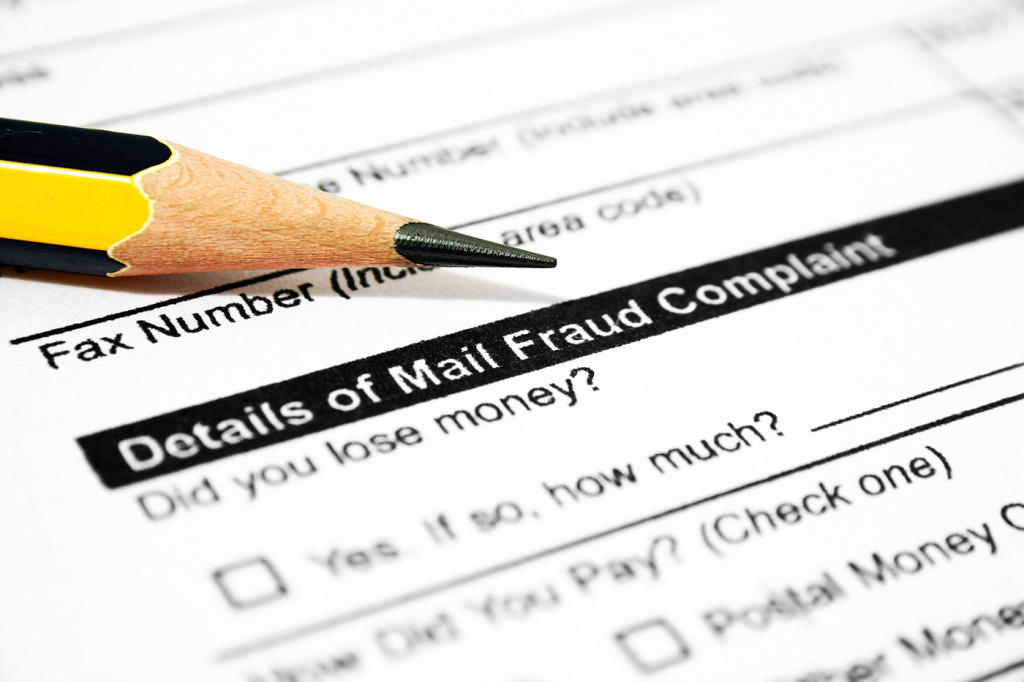Posted: March 16, 2023 by Vawn Himmelsbach in Protect, avoid fraud, fraud prevention month, prevent fraud
Top fraud prevention tips for 2023
March is Fraud Prevention Month — and staying on top of the latest scams is more important than ever. Online scams and cyber breaches have recently soared as our lives move further into the digital realm and fraudsters prey on people’s fears and vulnerabilities. The Manitoba government announced $100,000 in funding to fight cybercrimes last year, particularly those involving cryptocurrencies.
From cryptocurrency to online job scams, here’s how to spot — and avoid — different types of fraud. Review these fraud prevention tips and stay protected.
1. Bitcoin and cryptocurrency scams
The Better Business Bureau issued a warning after seeing a rise in cryptocurrency scams during the first six months of 2022. It received 914,000 related complaints, with victims losing an average of $3,617. One Winnipeg victim recently lost $168K in a fraudulent bitcoin investment scam.

A cryptocurrency investment scam might promise a high return on your investment when you deposit your money into a so-called trading platform. But once you’ve deposited your money, you can never cash out. There’s little regulatory oversight of cryptocurrency, and it’s not backed by the banks or federal government, which means it’s not insured.
Also read: Stop fake SIM swaps: Prevent and recover from smartphone fraud
2. Job scams
Online job scams are rampant, particularly with young adults who are less suspicious of being approached online with a job offer. These scams have only increased with uncertainty in the job market in North America.
A common scenario is an offer to participate in “car wrapping,” or wrapping your vehicle with a logo, and receiving fraudulent cheques for your efforts. Also look out for invitations to be a mystery shopper or financial agent, which are frequently fronts for money laundering or schemes to persuade victims to transfer funds to third-party bank accounts.
Fraudsters may also reach out over Instagram, claiming they received your resume through a job posting site, and ask for personal details or financial information. They might even send advance ‘payment’ via a cheque, e-transfer, money transfer or other digital means. But after you deposit the money, you get a call from your financial institution, saying the cheque was counterfeit. So, if you’ve already spent the money, then you will owe the money back to your financial institution.
Fortunately, there are plenty of red flags.
First off, a legitimate employer would never send money in advance of starting a job. If the ‘employer’ sends a contract to sign with a cheque, it’s most likely bogus. Never accept a cheque or e-transfer from someone you don’t know, especially if it’s coming from a different company than the one you’re supposedly now working for.
Other red flags include:
- Refusing to communicate through official company channels, or using emails that don’t have the company domain
- Rampant typos and grammatical errors in the job posting, emails or messages
- Communication outside of regular business hours
- So-called ‘recruiters’ who have no LinkedIn presence or clear association with the company they’re allegedly hiring for
- Job offers made before meeting with anyone in the company.
If in doubt, research contact information for the company that supposedly reached out, and validate that information.
3. Spoofed government services
The past several years have brought economic uncertainty, job loss and financial hardship for many Canadians. And fraudsters are profiting from this. Government service scams range from so-called third-party companies offering to help you fill out applications for financial assistance, or criminals spoofing government or healthcare websites to steal your credentials and sign-up for financial assistance to receive payments in your name. A recent example in Winnipeg is of callers impersonating police officers in order to obtain personal information such as credit card numbers.

You might also receive unsolicited calls, emails or texts requesting urgent action or payment for government services—which is especially prevalent during tax time. Meanwhile, fraudsters are once again sending ‘refund’ text messages, enticing you to click on a link.
Remember, the CRA never sends text messages and would never text a refund.
4. Wire transfer fraud
Wire transfer fraud, which sometimes involves cryptocurrency, tricks or coerces you into transferring money to an account owned by the fraudster. You might be asked to wire money into a bank account for a product or service, rather than send a cheque. Other scams try to scare you into depositing money to clear your name for an alleged crime, such as money laundering.
Never give out personal or financial information—or send money—to someone you don’t know, especially if they claim to have recently changed their banking information.
Pay attention to correspondence: Does the email address match the original? If the fraudster is using scare tactics, remember that a government or police official would never ask you to send money to a foreign account. If they’re threatening you, hang up and call the real authorities.
5. Social media scams
Social media scams are growing as our lives increasingly move online. A common tactic is a contact reaching out on Instagram and asking for help setting up a new account. You may be asked to complete a simple task like copying a link. In a recent case, a Calgary man was locked out of his account and his images were used to promote a cryptocurrency scheme.
Another common scam on social media is false advertising. Be cautious of ads that promise job opportunities, discounted merchandise, or free trials. When interacting with accounts, look for signs that they aren’t owned by a real person. Characteristics of fake accounts include low engagement, spam content, spelling mistakes, and a large following coupled with few posts. Do a Google search of the product and company name — you may find other social media posts or reviews that help determine if the company is legitimate or not. By being aware of the latest scams and fraud prevention tips, you’ll be in a better position to outwit the fraudsters. But if you think you might have been scammed, don’t be afraid to speak up and report it.
Sneak Preview

More fraud prevention tips: 17 Tips to Protect Your Account From Online Fraud
Whether snared in an email, on a website, within an online form or ambushed in money transfers, even the savviest and most aware people can become victims of clever scammers.
- Why you should turn off the “viewing pane” in email
- How ‘free’ downloads can cost you
- Why you should be cautious about auto-complete
Up Next
Community stories
Read more ›
Celebrating the 10th anniversary of student-run credit union
Just over 10 years ago, a survey circulated at Winnipeg’s Technical Vocational High School. The results showed that students at the school, commonly known as Tec Voc, felt short-changed—they were…
Borrow, Business growth, Community stories
Read more ›
Kilter Brewing Co. serves up craft beer and community connection in St. Boniface
Deep in the heart of St. Boniface, Kilter Brewing Company is a hidden treasure—an oasis for Winnipeggers to escape their day-to-day routines, enjoy craft beer and connect with their community….
Borrow, General, Money tips
Read more ›
How to use a mortgage calculator to budget better
Learn how to use ACU’s mortgage calculator to figure out how much mortgage you can afford, and what budget you should set before you start house hunting. A mortgage lender…




